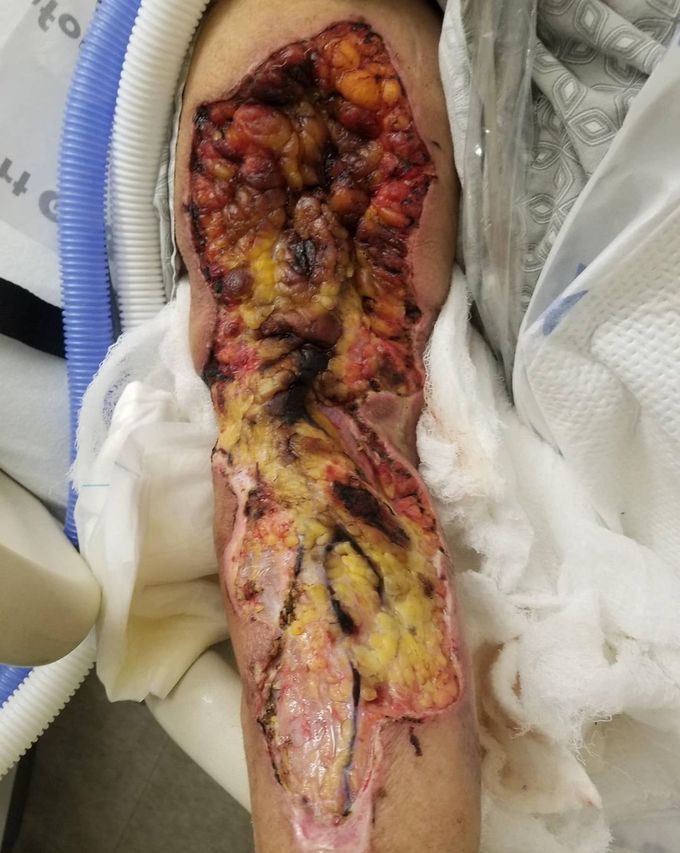


The result of extravasation with vesicant agent leading to tissue necrosis- photo shows the arm after debridement surgery. Apparently the IV cannula was displaced leading to iv injection going into tissue instead of veins (extravasation). Breakdown of tissues led to surgery to remove damaged and dead tissue (debridement). Extravasation is the leakage of intravenously (IV) infused, and potentially damaging, medications into the extravascular tissue around the site of infusion. The leakage can occur through brittle veins in the elderly, through previous venipuncture access, or through direct leakage from wrongly positioned venous access devices. When the leakage is not of harmful consequence it is known as infiltration. Extravasation of medication during intravenous therapy is an adverse event related to therapy that, depending on the medication, amount of exposure, and location, can potentially cause serious injury and permanent harm, such as tissue necrosis. Milder consequences of extravasation include irritation, characterized by symptoms of pain and inflammation, with the clinical signs of warmth, erythema, or tenderness.
That looks like an adriamycin extravasation. I have also seen calcium do this when someone unwisely used a foot vein in an adult. The patient lost her foot over it. This is why PICC lines and ports are better choices for vesicants.

